There's a Reason Korean Sunscreens Are Unmatched When It Comes to UV Protection
Once again, K-beauty knows best.
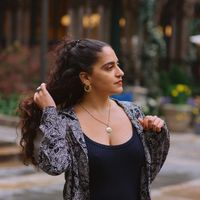
Sophia Vilensky
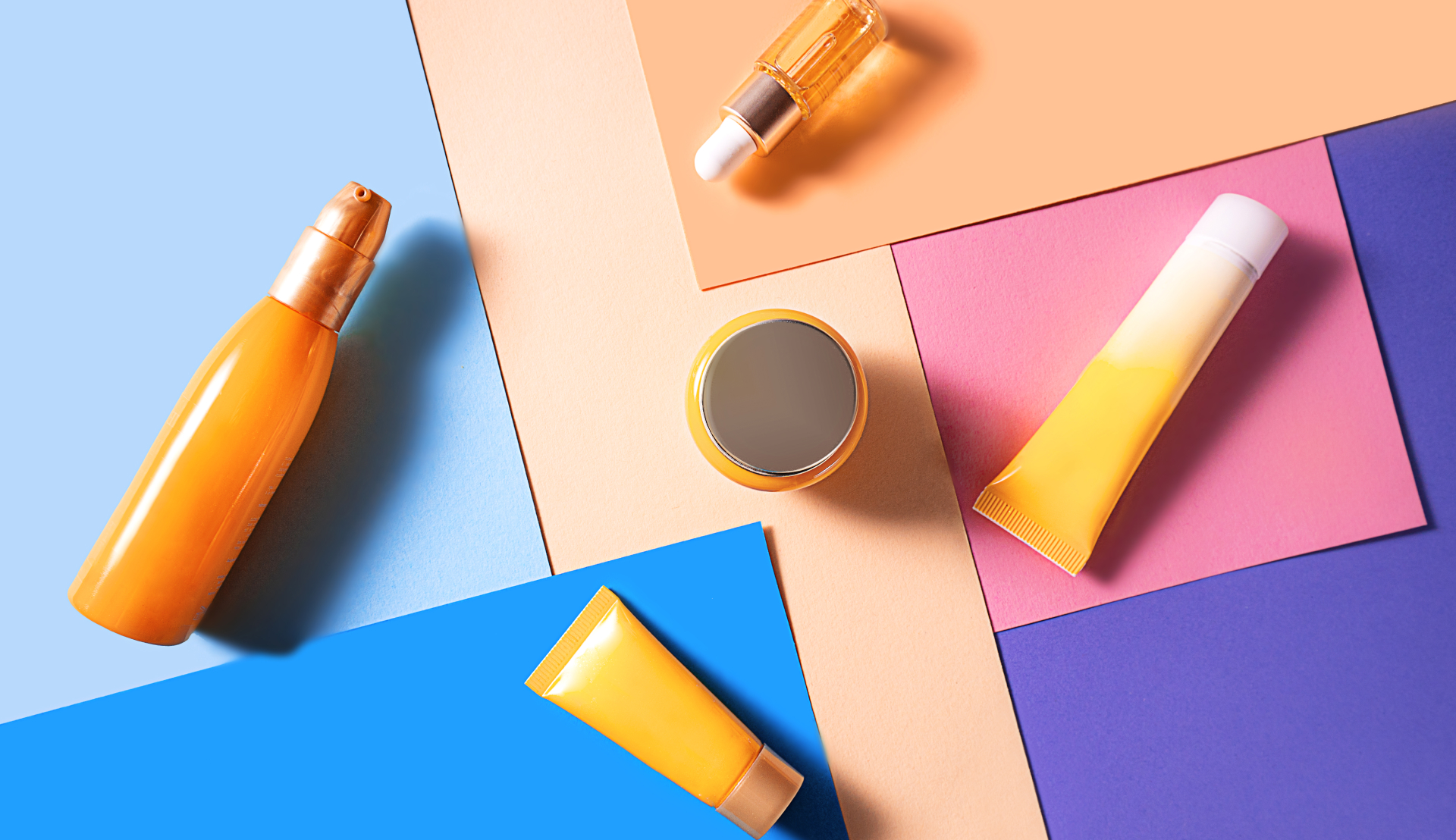
Whether you’re spending hours on the beach or sitting at your desk by a window, sun protection is key. Wearing sunscreen every day, in every location, reduces your risk of developing skin cancer, as well as fine lines, hyperpigmentation, and, of course, sun spots. For around-the-clock sun protection, you'll want to check out the best Korean sunscreens. Not only are they some of the most versatile and hardworking SPF options on the market, they feature of the most advanced, elegant formulas in the world.
Few beauty routines emphasize the importance of sunscreen as much as a Korean beauty regimen, with almost every K-Beauty brand including a sunscreen meant to protect against UVA and UVB rays while sitting matte under your makeup. Korean sunscreens are packed with ingredients that promote long-term skin health, and they often don’t include a white cast—meaning there are versions for every skin tone and texture.
"With Korean sunscreen, you feel like you're wearing skincare, and that sun protection is just part of that,” Dr. Zion Ko Lamm, a board-certified doctor of internal medicine and expert in Korean skincare, tells Marie Claire.
Ahead, we've gathered the best Korean sunscreens for seriously protected skin—plus what to look for if you're diving into the world of Korean sunscreen.
What to Look For in a Korean Sunscreen
- SPF Level
Korea has its own standards for sun protection—and they're a bit more in-depth than the United States's basic pass/fail broad spectrum test.
“There are four grades in the PA system: PA+, PA++, PA+++, and PA++++,” Alicia Yoon, founder of Peach & Lily, previously told Marie Claire. “Each plus sign covers a rand of the PPD (Persistent Pigment Darkening) test. The highest number of the +’s offers the most UVA protection. So while you’re shopping, look out for sunscreen bottles with as many plus signs as possible.”
SPF levels can seem confusing. Is higher really better? By how much? Which SPF level is best for the face?
"I tell my patients to go for at least SPF 30," Dr. Lamm says. "Yes, higher SPF does offer more protection, but the increase is incremental and smaller. So, for example, SPF 30 offers 97 percent blockage of UVB rays, SPF 50 blocks 98 percent, and then SPF 100 blocks 99 percent. So a majority of us physicians say at least SPF 30, because the difference after that is not as big."
She notes, however, that if you are particularly sensitive to the sun (whether because of medication, diseases like lupus, very fair skin, or a history of skin cancer), or if you know that you'll be out in the sun all day when the rays are especially harsh, you should err on the higher side when it comes to SPF levels.
- Broad-Spectrum Coverage
Dr. Lamm says that no matter the formulation, your sunscreen should always be broad spectrum, which means that it protects against both UVA and UVB rays. While UVB protection is measured by SPF (which stands for Sun Protection Factor), UVA protection is quantified in a sunscreen's PA rating—a detail more often included in Korean options than in Western ones. While UVB rays cause sunburn most often, UVA rays penetrate skin more deeply and play a greater role in wrinkle formation.
"If you use any Korean sunscreens you'll actually also see a PA rating, and means it offers UVA protection as well," says Dr. Lamm. "They don't really do any PA ratings in America. I always say I like PA with four pluses (PA++++)."
- Formulation
Once you've ensured that your sunscreen is SPF 30 or higher and that it has a high PA rating, you only need to worry about the finish of the formula. Dr. Lamm explains that someone with oily skin might want a Korean sunscreen with a matte finish, while those with oily skin might prefer a thicker, more hydrating formula.
"If you have sensitive skin, oftentimes we will recommend mineral sunscreens over chemical ones," she adds. "And if you want other skincare benefits, you can look for products that have antioxidants and other ingredients that make the sunscreen work even better." Someone looking for brightening options may prefer a Vitamin C-infused formula, for instance, while someone looking to refine the appearance of pores may opt for a niacinamide-infused sunscreen.
- Cost
"In Korea, skincare doesn't have to break your bank," says Dr. Lamm. "Sometimes, the price of what you're starting to see on the Western side is just ridiculous, but these sunscreens are often 15 or 20 dollars, and they work great."
The Best Korean Sunscreens
- The Best Korean Sunscreen Overall: Round Lab Birch Juice Moisturizing Sunscreen
- The Best Smoothing Korean Sunscreen: ETUDE Sunprise Mild Airy Finish Sun Milk
- The Best Korean Sunscreen for Oily Skin: Beauty of Joseon Matte Sun Stick: Mugwort + Camelia
- The Best Easy-to-Find Korean Sunscreen: Innisfree Daily UV Defense Sunscreen Broad Spectrum
- The Best Korean Sunscreen for Acne-Prone Skin: Tocobo Cotton Soft Sun Stick
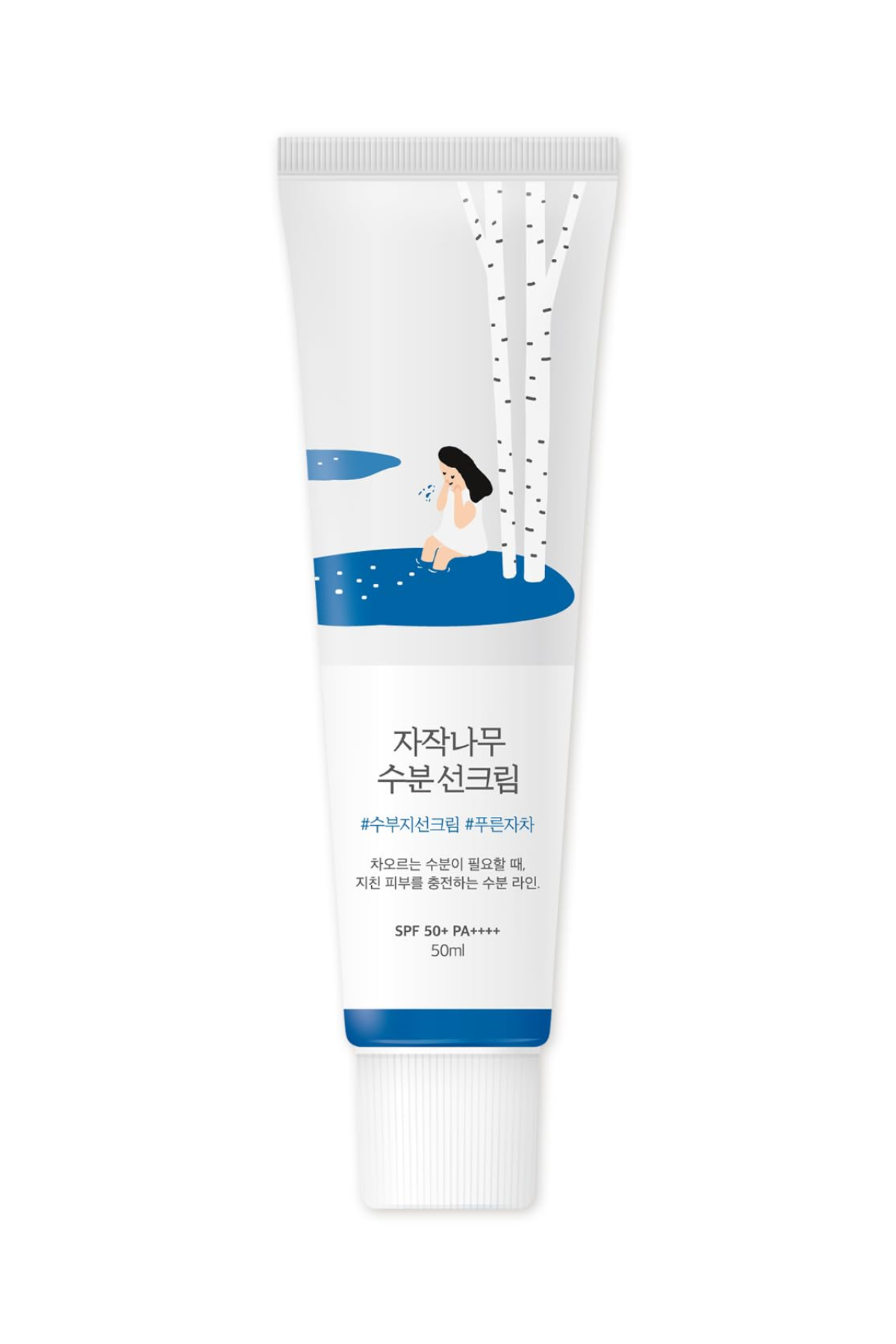
Boasting no white cast and strong UV protection, this might be exactly what you're looking for in an SPF. "My favorite Korean sunscreen of all time is probably Round Lab Birch Juice," says Dr. Lamm. "It's very, very lightweight, has great coverage, is cosmetically very elegant, and has no particular smell. Everything about it is amazing. Round Lab has a bunch of different formulations of sunscreen, but this one is my favorite."
UV Protection: SPF 50+; PA++++
Texture: Cream
Type: Chemical sunscreen
Pros: Lightweight; Expert-approved; Affordable
Cons: Some users with acne-prone skin found that it broke them out
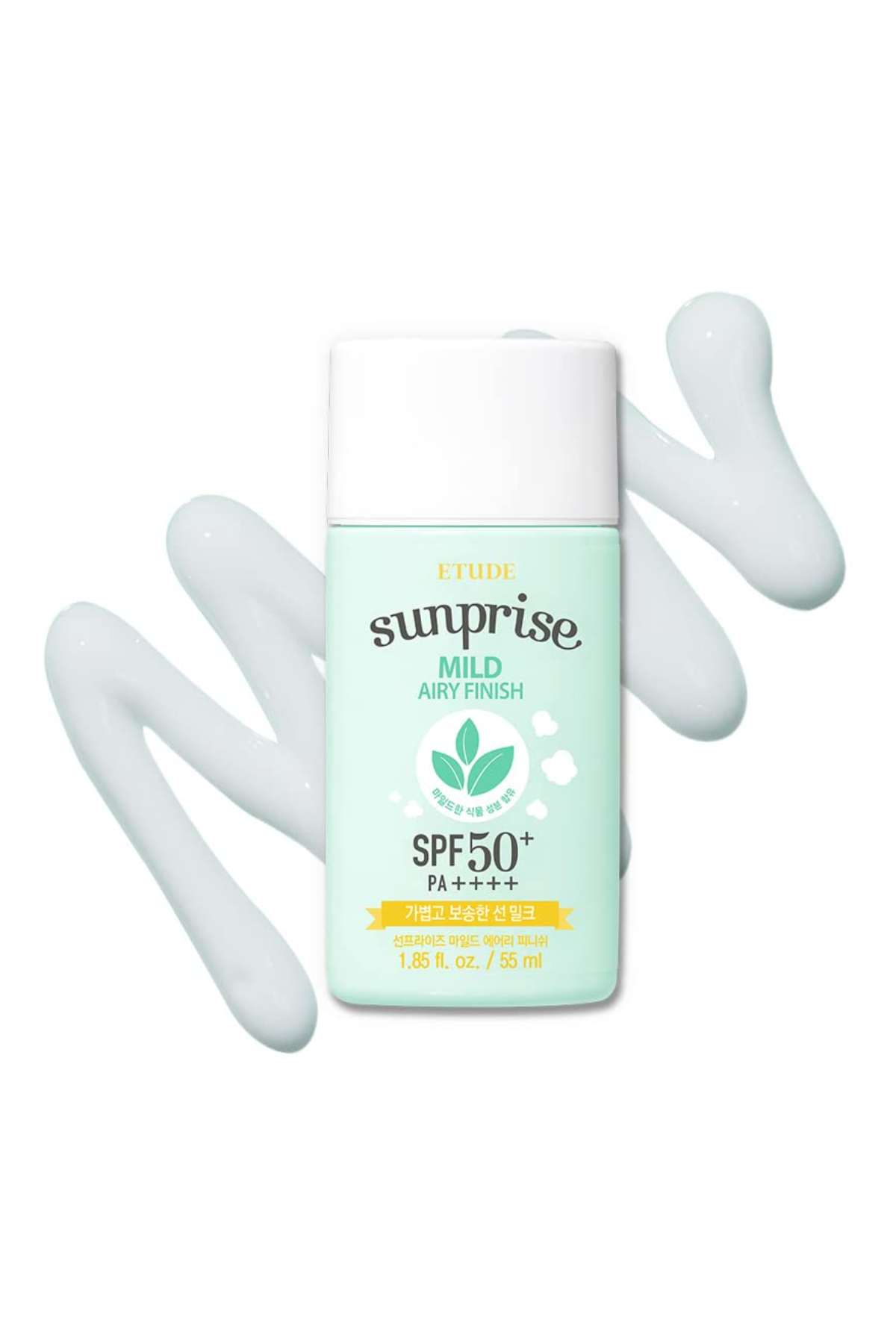
The light and bright ETUDE Sun Milk is often favored for its easy blend-ability. "I love the light, liquid finish of this sunscreen. The skin is left feeling so smooth," shares Dr. Nicole Lee, MD MPH FAAD, a board-certified dermatologist and owner of Epoch Dermatology in Garden City, New York. "Plus, it works great as a primer underneath make-up."
UV Protection: SPF 50+; PA++++
Texture: Liquid
Type: Mineral sunscreen
Pros: Airy texture; Smoothing; Non-oily and non-sticky finish
Cons: Small bottle
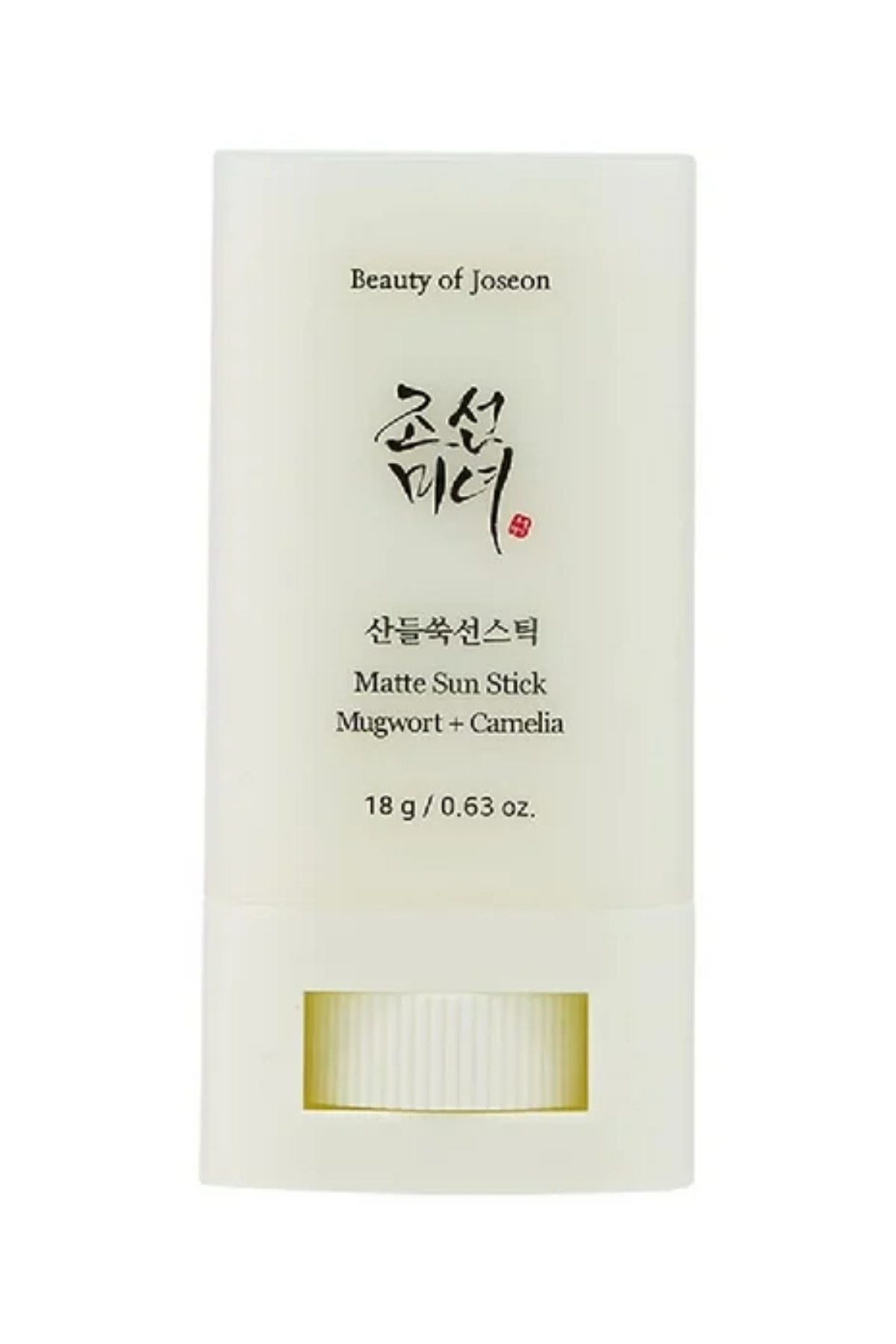
Dr. Lamm recommends Beauty of Joseon's Matte Sun Stick if your skin is on the oilier side. "It's matte, to smooth over and even out oily areas with ease," she says. But if you have dry skin, consider another option: Dr. Lamm says this one tends to dry her complexion out.
UV Protection: SPF 50+; PA++++
Texture: Stick
Type: Chemical sunscreen
Pros: Works well with makeup; Expert-approved; Good for oily skin
Cons: Mattifying effect may not be suitable for those with especially dry skin
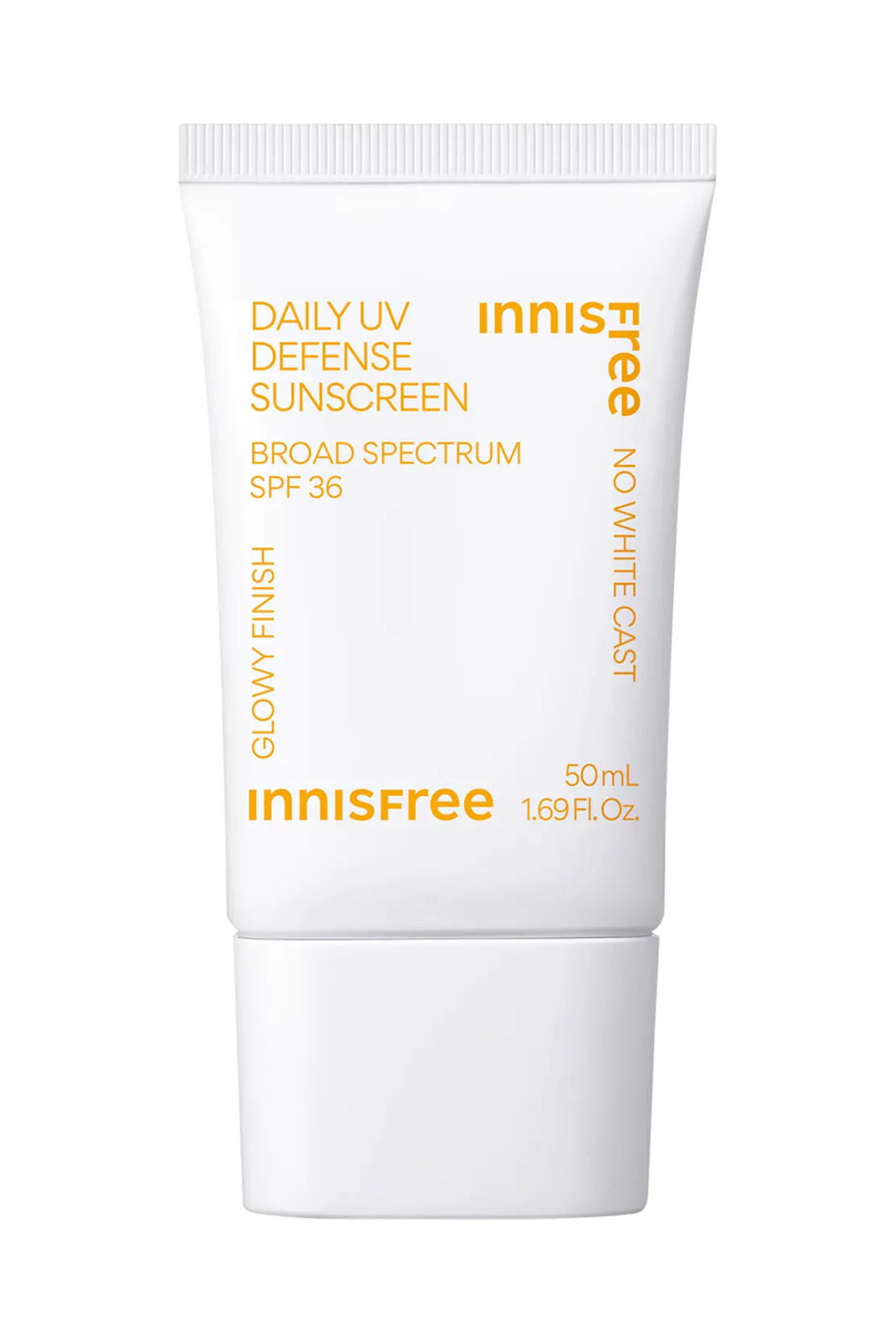
"It's so good, and really cosmetically elegant," says Dr. Lamm of the Innisfree Daily UV Defense Sunscreen. "It's something that I reach for often, and it layers on top of your skincare and under your makeup so beautifully. You never have to worry about if it's going to pill or if it's going to have that white cast, or if it's going to smell bad or lay heavy on your skin. I've finished so many tubes."
Brooke Knappenberger, Marie Claire's Associate Commerce Editor, found this $18 pick while scanning TikTok for affordable yet hardworking sunscreen to compare with luxury formulations. "When I say it’s nearly exactly the same in terms of texture and feel, I really mean it," she says. "This sunscreen is lightweight, creamy, fast-absorbing, and feels nearly invisible on the skin. It actually feels more like a moisturizer than anything."
UV Protection: SPF 36
Texture: Lightweight cream
Type: Chemical sunscreen
Pros: Expert-approved; Layers well with makeup and skincare; No white cast; Broad spectrum
Cons: SPF level not as high as competitors
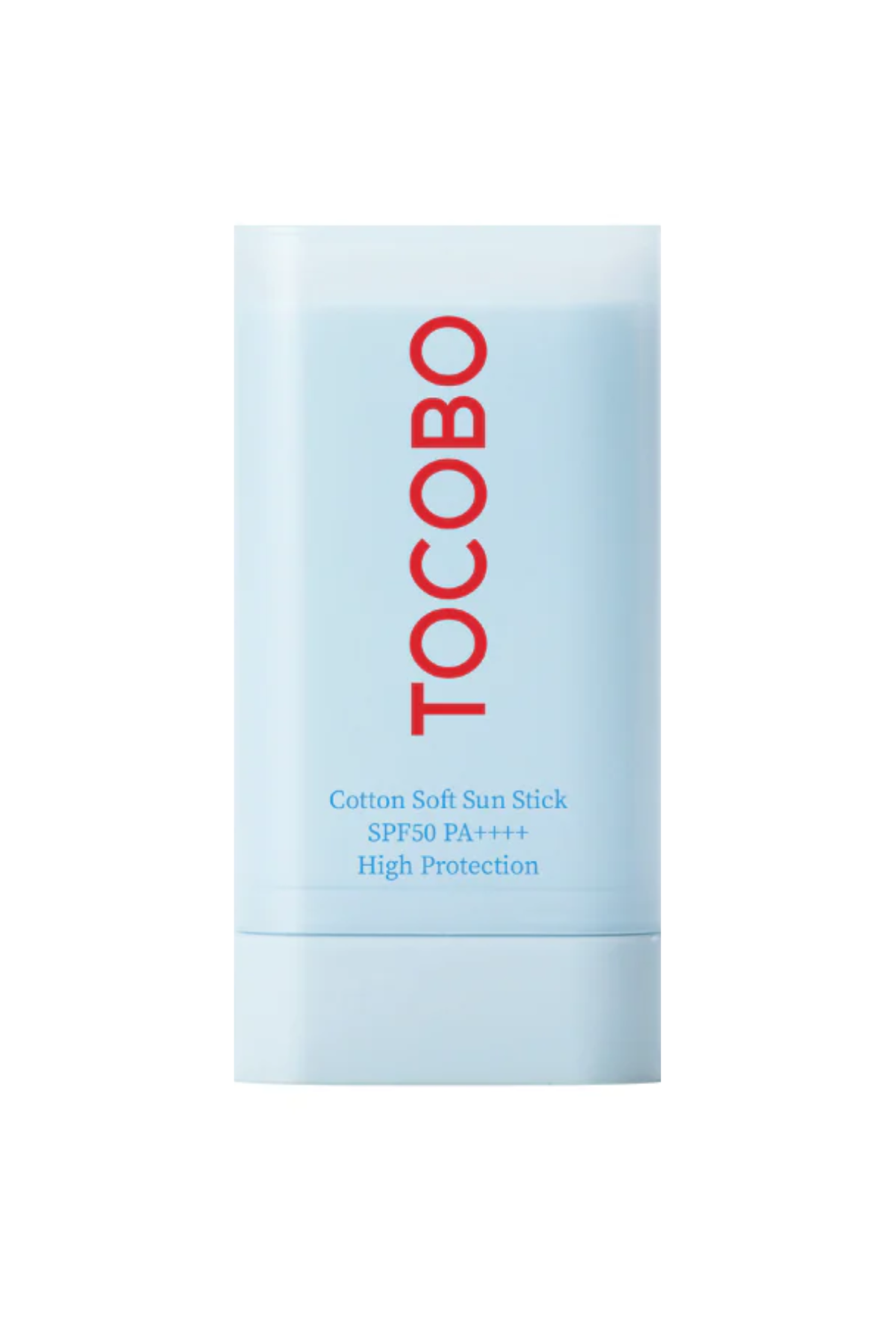
"There's a really small Korean skincare breand called Tocobo, and they have this cute, baby blue sun stick that works great as well," says Dr. Lamm. The vegan formula is made with acne-prone skin in mind, boasting a soft, lightweight consistency that promises to keep sebum production under control using AC Herb Complex. Unlike other acne products, however, it continues to moisturize skin via ingredients like jojoba oil.
UV Protection: SPF 50+; PA++++
Texture: Stick
Type: Chemical sunscreen
Pros: Vegan; Cruelty-free; Great for acne-prone skin
Cons: May expose users to titanium dioxide
Also Recommended
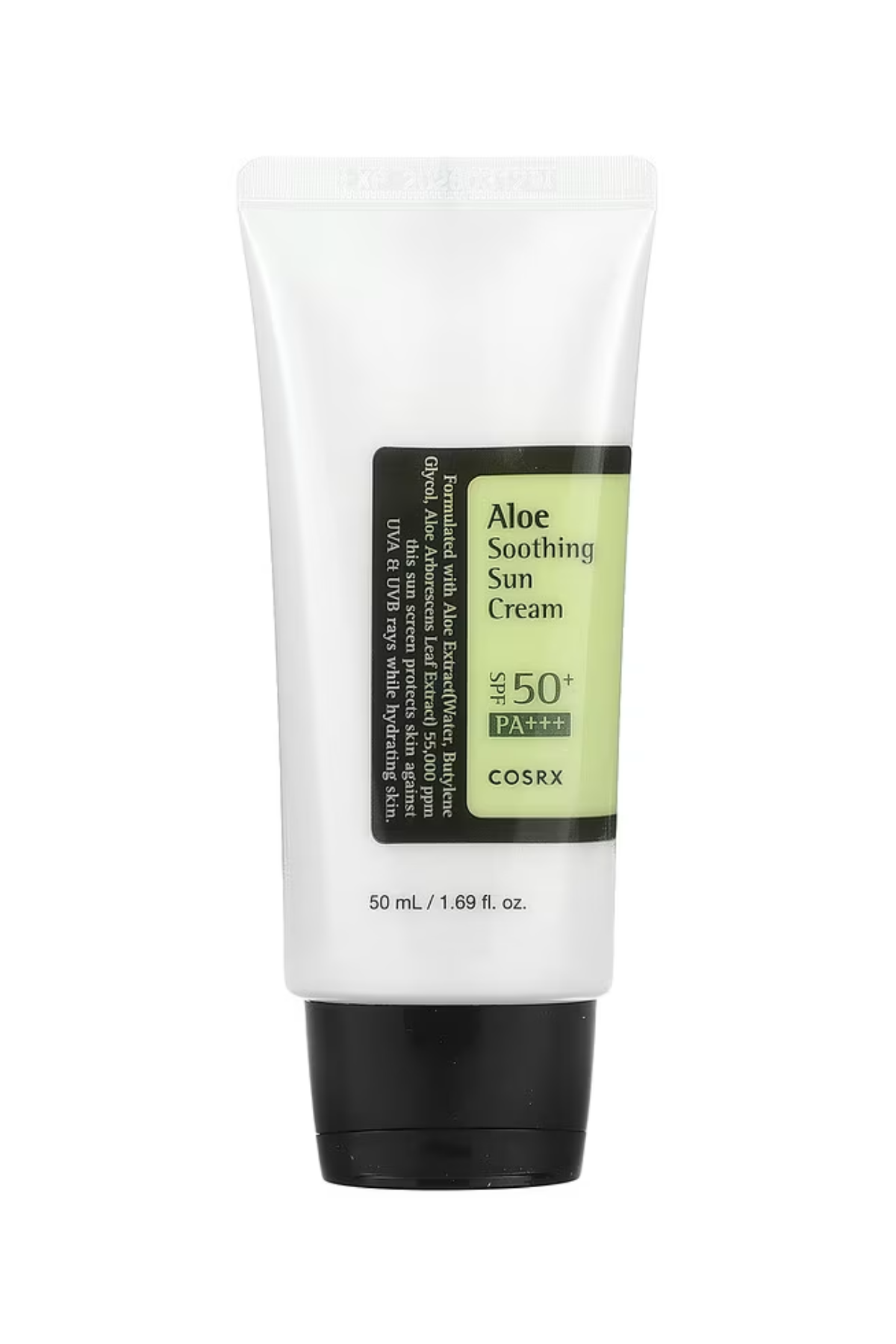
Formulated with aloe, COSRX's daily SPF is lightweight enough that it feels like a moisturizer. "This cult-y Korean skincare brand is known for its super-effective, super-soothing snail essence (!!!), but its sunscreen is just as covetable," says Marie Claire Beauty Editor Samantha Holender. "If you're prone to burning, the aloe in this SPF 50 option will help ease the pain, and prevent more damage from happening."
UV Protection: SPF 50+; PA+++
Texture: Lightweight cream
Type: Hybrid sunscreen
Pros: Soothing; Great texture; No white cast
Cons: Small bottle
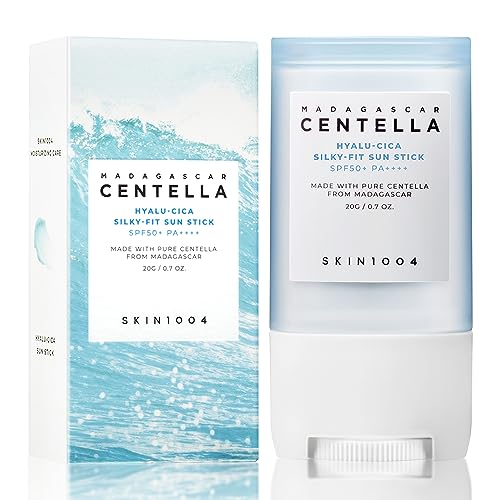
"Skin1004 makes a pretty amazing sun stick as well," says Dr. Lamm, adding that she's particularly fond of this formula's inexpensive price point. This sunscreen also includes one of her favorite ingredients, centella asiatica, which has anti-inflammatory and antioxidant qualities to aid both your short- and long-term skin health.
UV Protection: SPF 50+; PA++++
Texture: Stick
Type: Chemical sunscreen
Pros: Expert-approved; Affordable; Great for combination skin, according to reviews
Cons: Doesn't offer as much protection as a cream formula
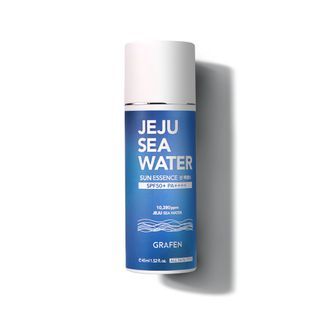
If you like a really lightweight sunscreen, consider this sun protection essence from Grafen. It's thin and never leaves a white cast, boasting a finish that leaves skin dewy rather than heavy, cake-y, or matte. Although it's an essence, it's applied like traditional sunscreen—at the end of your skincare routine. It's perfect for use on summer days, when the last thing you want is a thick, sweat-inducing formula.
UV Protection: SPF 50+; PA++++
Texture: Lightweight cream
Type: Chemical sunscreen
Pros: Extremely lightweight
Cons: Dewy finish, so may not work as well under heavy makeup
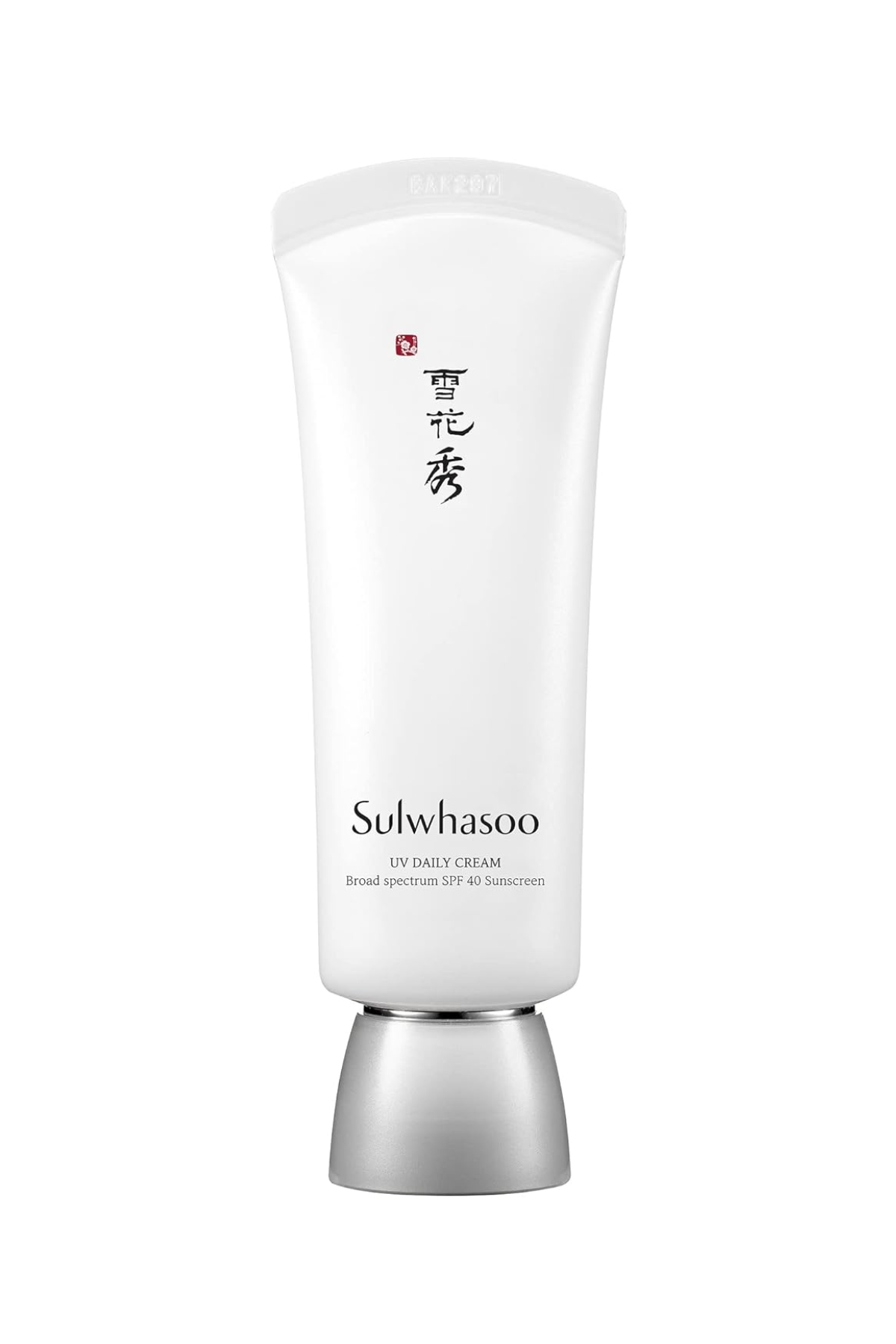
Sulwhasoo is one of the most well-established K-beauty brands out there, so you know this sunscreen is a winner. "This formula is infused with a handful of Korean herbs that give the skin a smooth and glowy base," says Holender. "There’s absolutely no pilling, and you can quite literally see a glassy effect take hold of your skin as you rub this formula in. It’s the perfect base for foundation—no primer is needed."
UV Protection: SPF 40
Texture: Cream
Type: Chemical sunscreen
Pros: Wears well under makeup; Doubles as primer; Leaves a glowy finish
Cons: Expensive; SPF rating isn't as high as other options
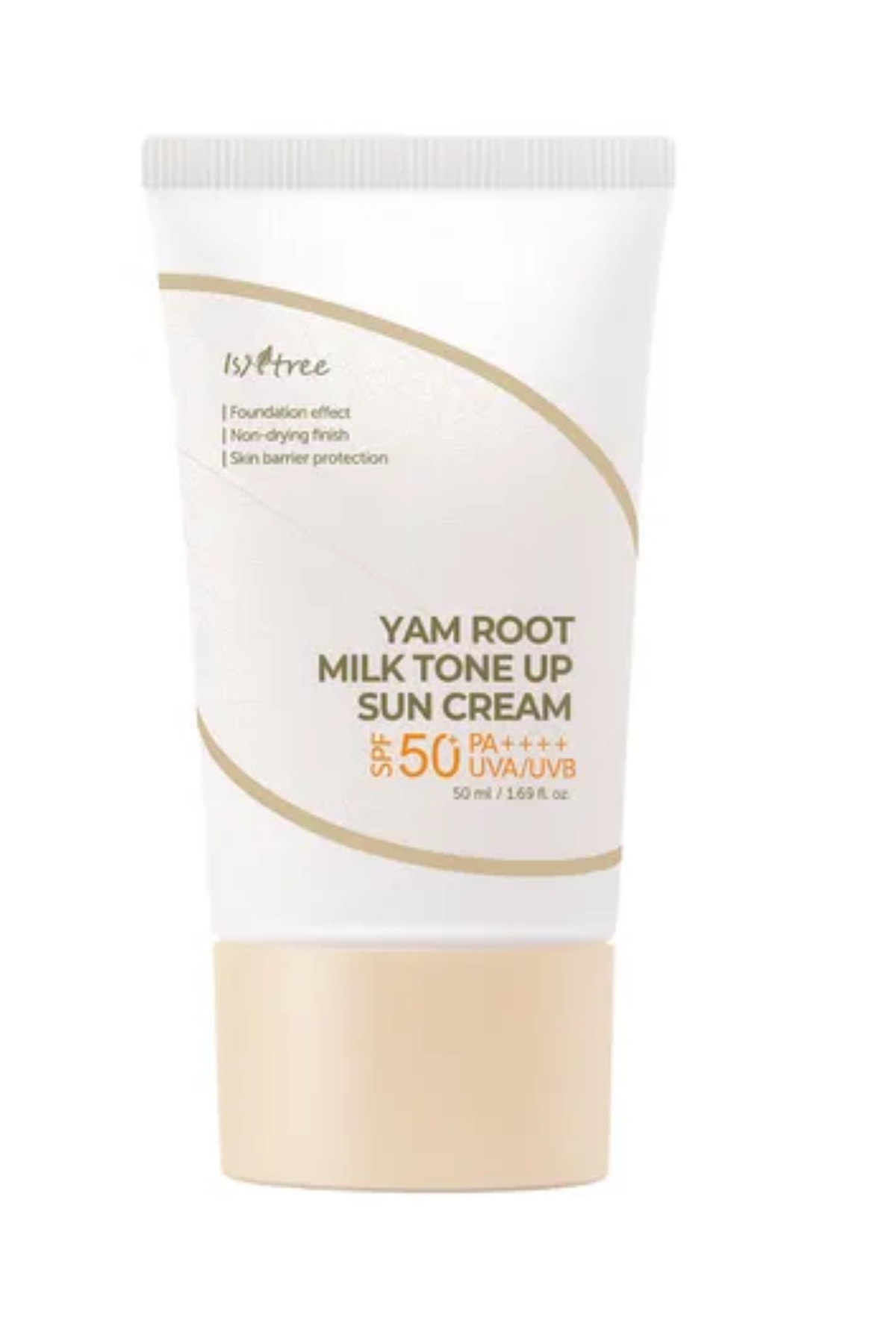
Isntree's lightweight, tinted Yam Root Milk Tone Up Sun Cream utilizes Andong Yam Root Extract, which is known for its impressive ability to retain moisture. "This SPF has mineral filters with iron oxide, which offer excellent protection, especially for patients suffering with pigmentation, such as melasma or acne marks," adds Dr. Lee, who counts the product among her favorite Korean sunscreens.
UV Protection: SPF 50+; PA++++
Texture: Lightweight cream
Type: Mineral sunscreen
Pros: Expert-approved; Feels fresh; Unscented
Cons: Won't work for darker skin tones
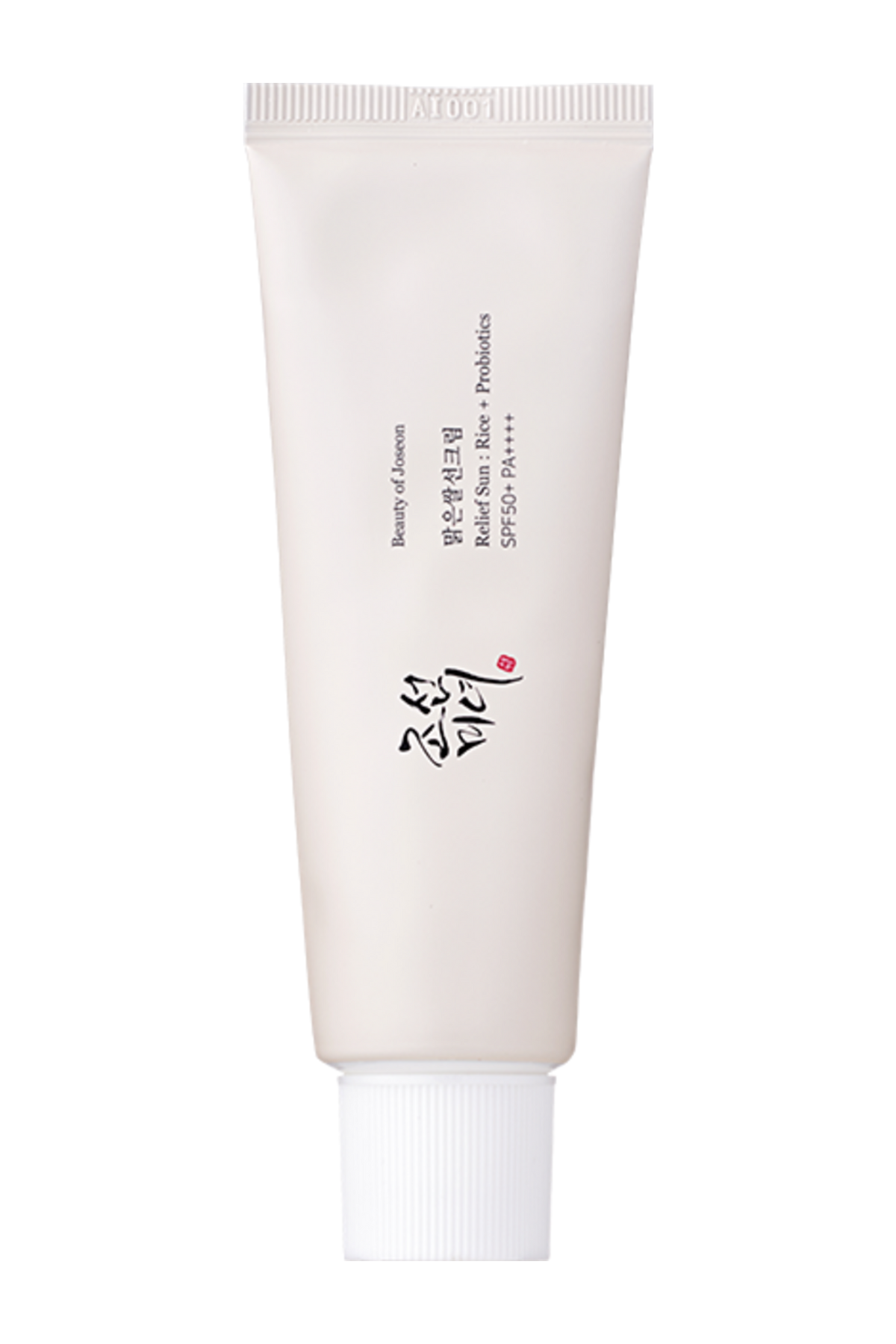
"This is another Korean sunscreen I can’t get enough of and it’s only $18," Knappenberger says. "I like to use this pick during the winter months when the sun isn’t as strong, since it doesn’t have as much sun protection as Beauty of Joseon’s, but it’s still one of my holy-grail sunscreens. It also has a lightweight, creamy texture that doesn’t pill under makeup or leave a white cast. It does, however, leaves the skin feeling moisturized and looking dewy, which I find works especially well under makeup."
UV Protection: SPF 50+; PA++++
Texture: Lightweight cream
Type: Chemical sunscreen
Pros: Editor-approved; Works well under makeup
Cons: Some people with oily skin find it too rich
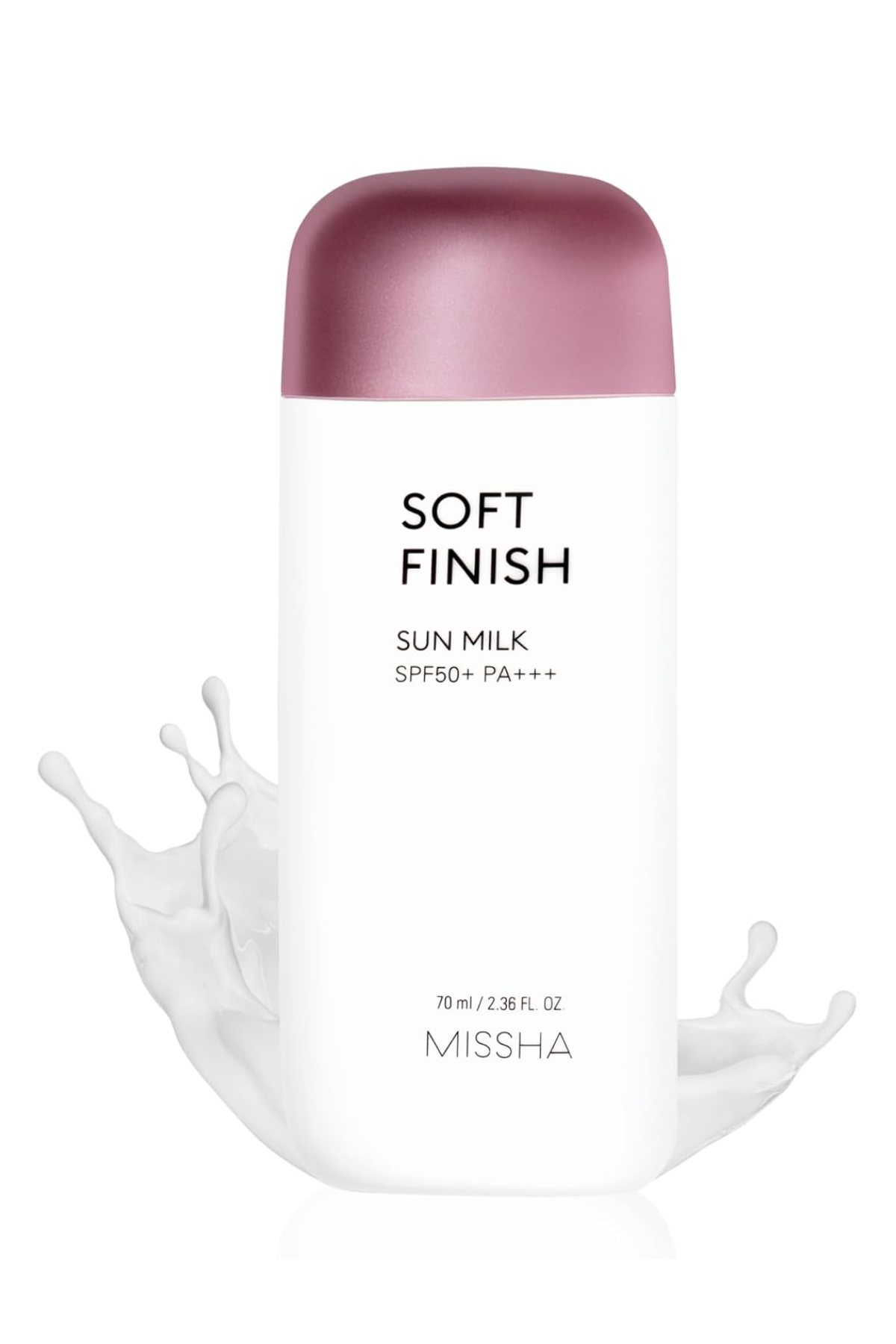
With a milky texture and blurring finish, Missha's All Around Safe Block Soft Finish Sun Milk was crafted to prevent burns and correct dark spots. Because a little goes a long way, make sure you apply enough for proper sun protection—a good rule of thumb is covering both your middle and pointer finger with a line of product.
UV Protection: SPF 50+; PA+++
Texture: Lightweight cream
Type: Chemical sunscreen
Pros: Editor-approved; Helps even your skin tone; Blurring finish
Cons: Might leave a white cast
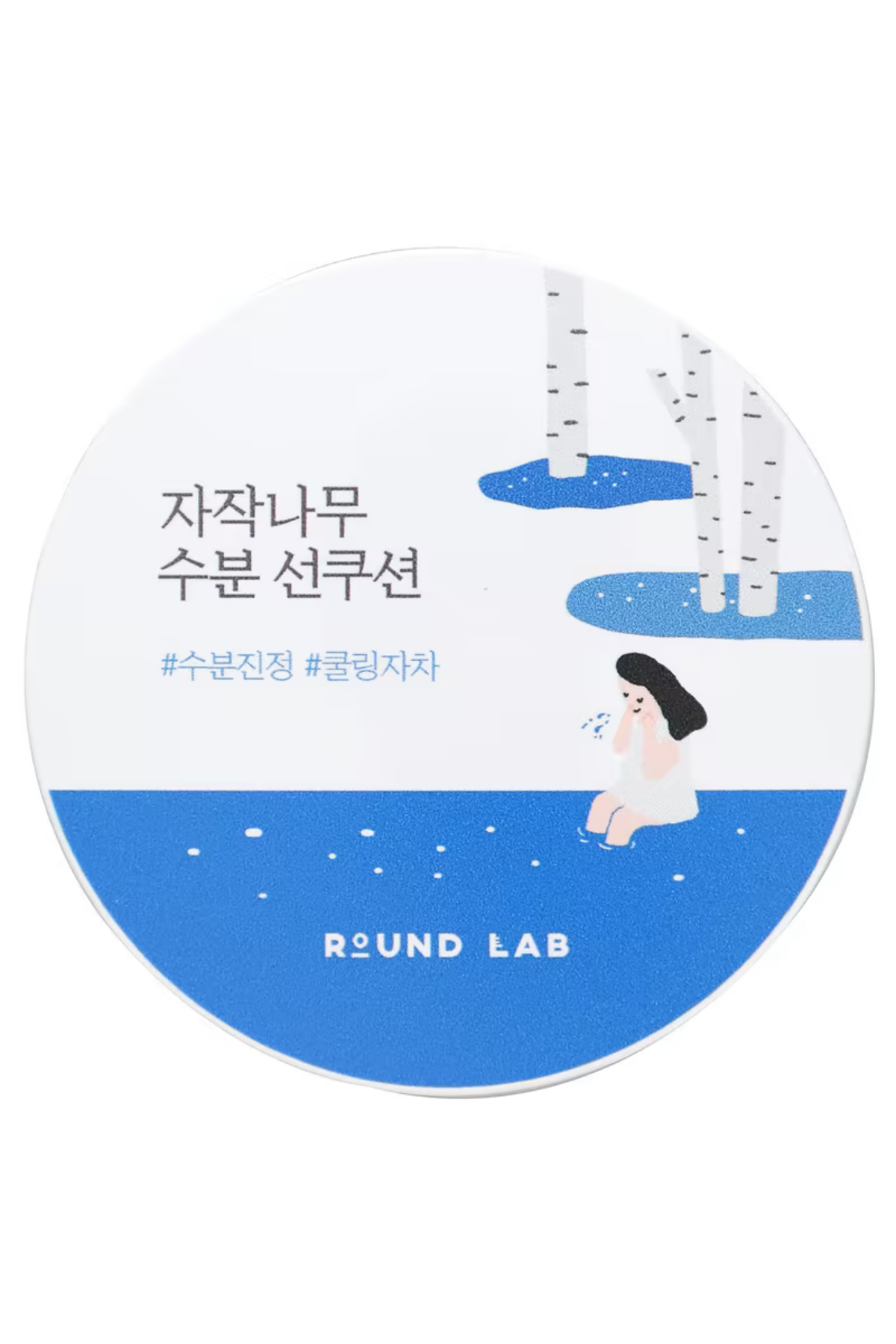
A sunscreen that works like a setting powder? Yes, please. This sun cushion from Round Lab boasts PA++++, and its powder formulation enables users to touch up their sunscreen throughout the day without having to remove their makeup. It never leaves a white cast, and its cushion applicator makes UV ray protection faster and more convenient than ever.
UV Protection: SPF 50+; PA++++
Texture: Powder
Type: Mineral sunscreen
Pros: Makes touching up sunscreen easy; Can be worn over makeup
Cons: Doesn't provide as much sun protection as a traditional cream formula
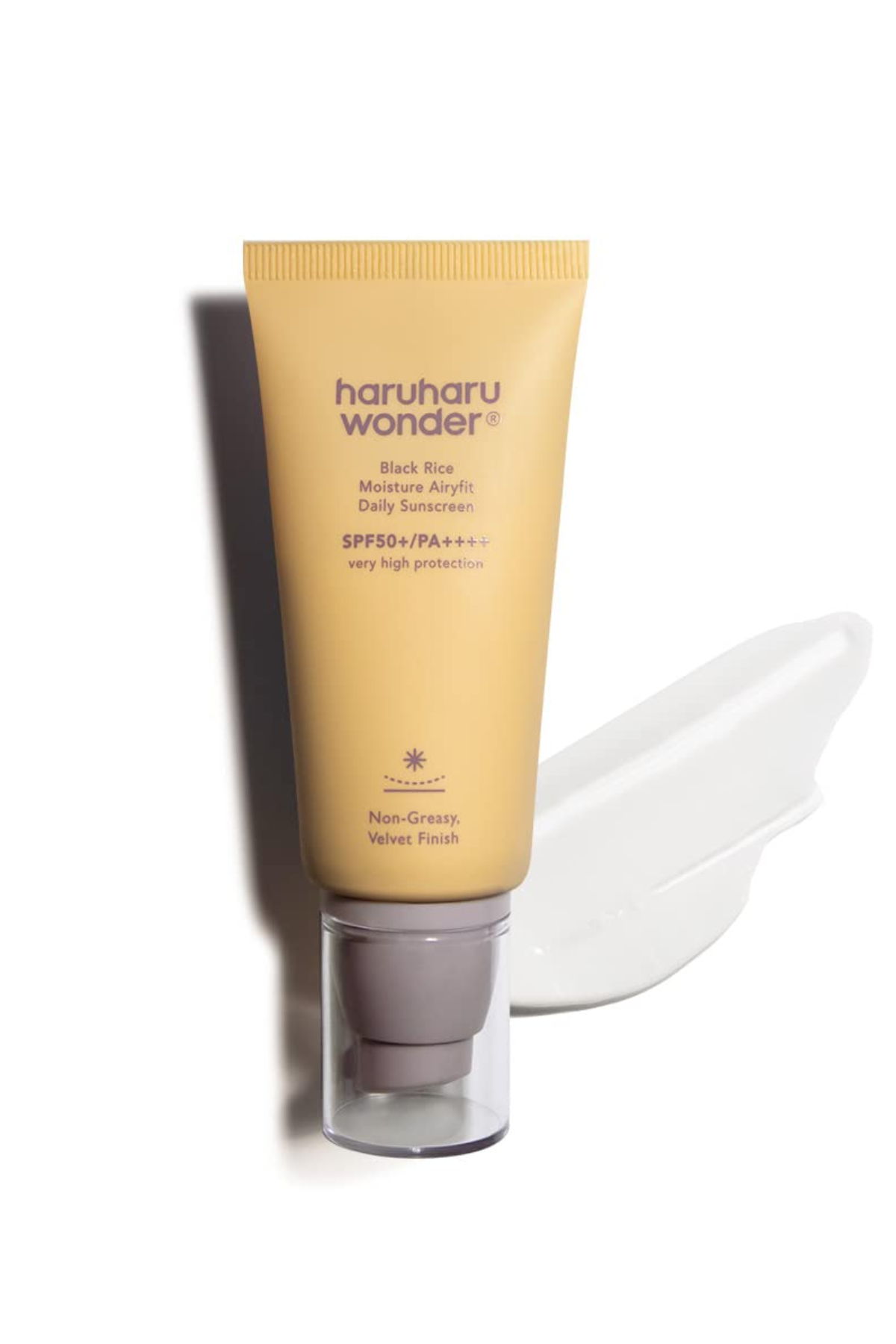
With a fast-drying formula that leaves behind an ultra-soft finish, Haruharu's Wonder Black Rice Moisture Airyfit Daily Sunscreen is indeed wondrous. Black-rice infused rice bran oil offers the skin some antioxidants and moisture while heartleaf extract nourishes and soothes.
UV Protection: SPF 50+; PA++++
Texture: Cream
Type: Chemical sunscreen
Pros: No white cast; Unscented; Natural finish
Cons: None found
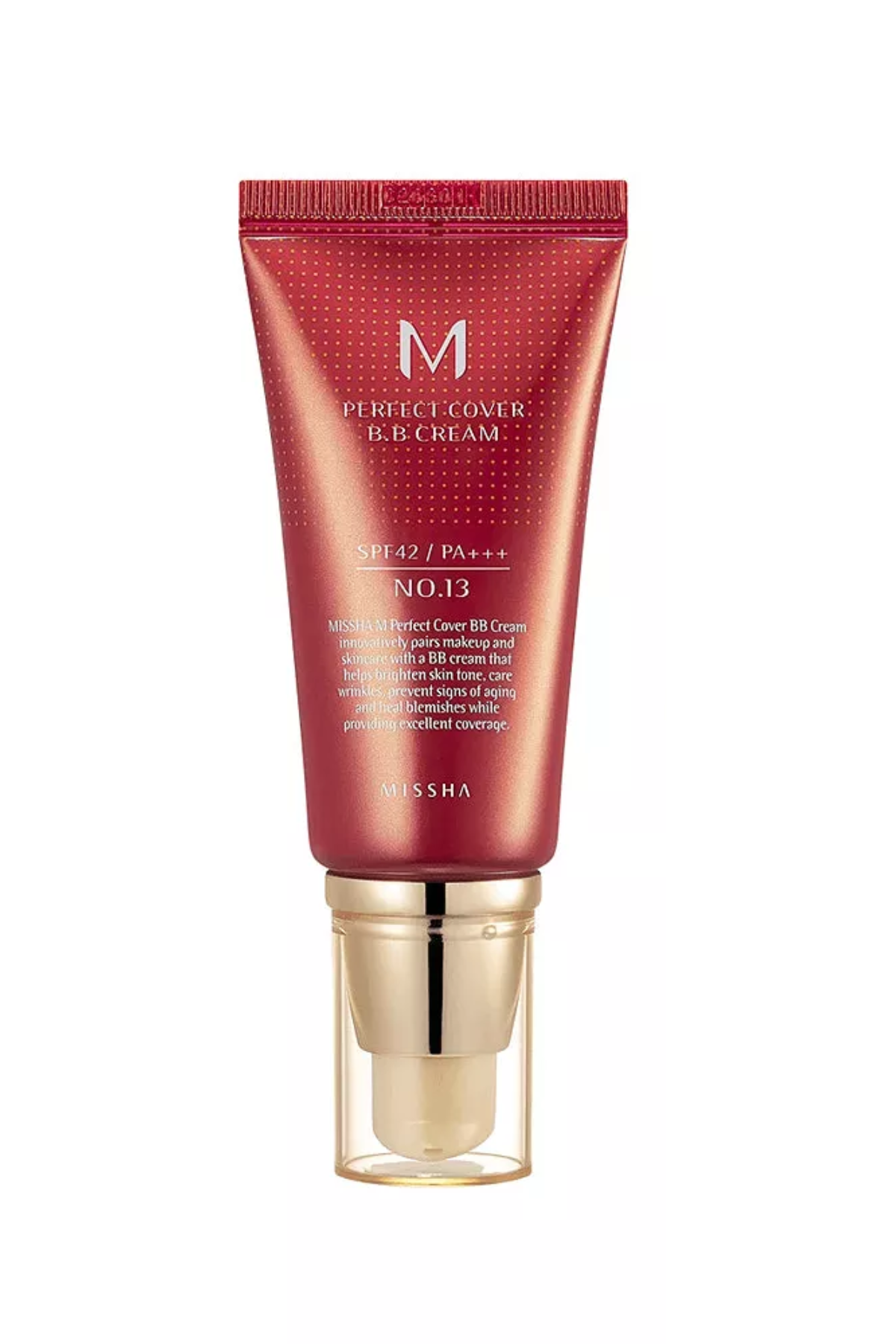
Did you know that your sunscreen can double as makeup? This SPF from Missha protects skin from both UVA and UVB rays while doubling as a BB cream. This means that it blurs imperfections and unevenness and provides targeted moisture for an improved appearance overall. It's easy to use, comes in a number of different shades, and is beloved among reviewers.
UV Protection: SPF 42; PA+++
Texture: BB cream
Type: Hybrid sunscreen
Pros: Tinted; Doubles as makeup; Hydrating
Cons: SPF level isn't as high as competitors; Color range is limited
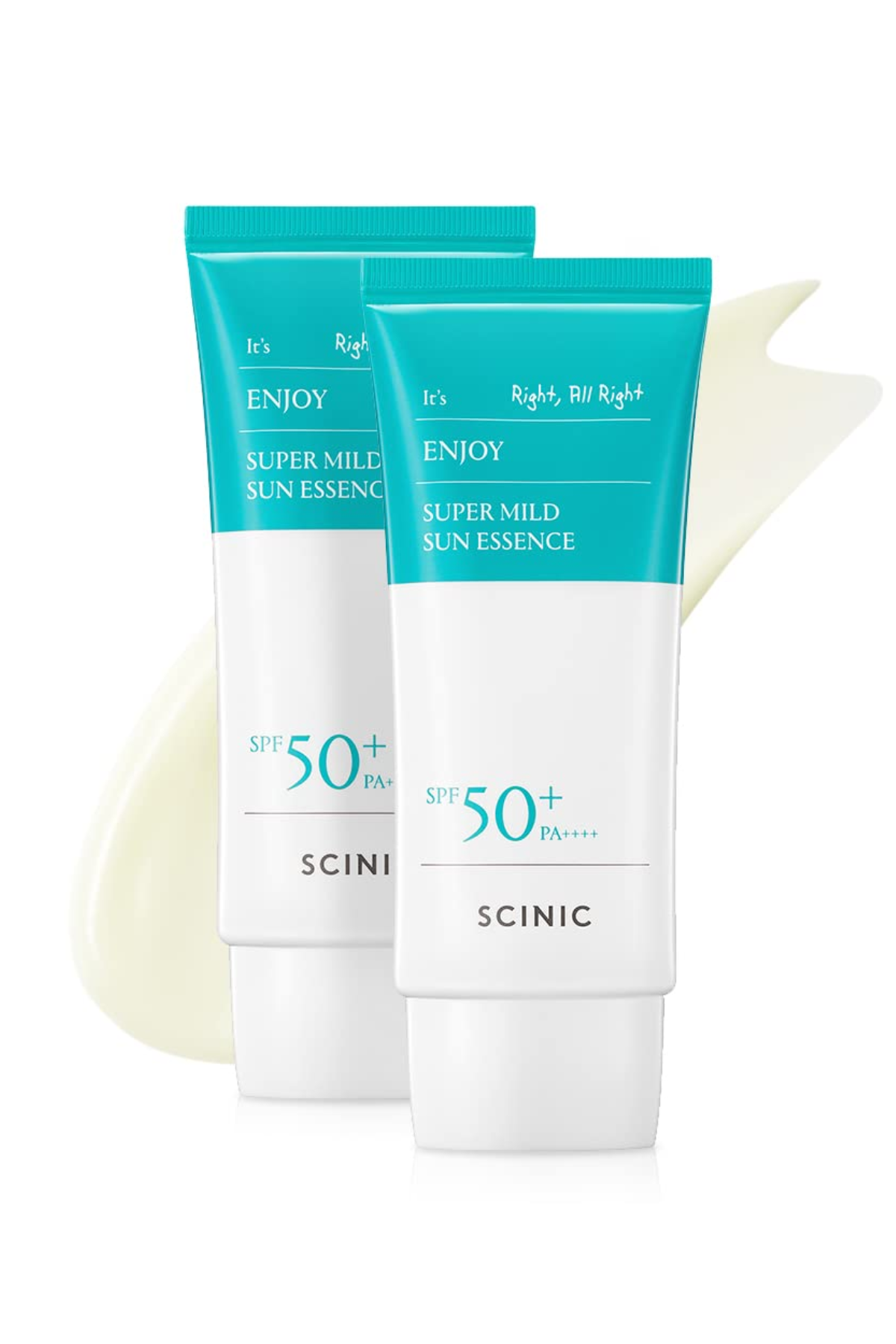
Promising eight whole hours of moisture, SCINIC's Enjoy Super Mild Sun Essence utilizes soy protein hyaluronic acid to retain moisture without any feelings of greasiness. Other pros include no pilling (that's major) or eye stinging—just happy, hydrated skin and plenty of sun protection.
UV Protection: SPF 50+; PA++++
Texture: Essence
Type: Chemical sunscreen
Pros: Moisturizing; Doesn't leave a white cast
Cons: Some reviewers wish it came in a bigger bottle
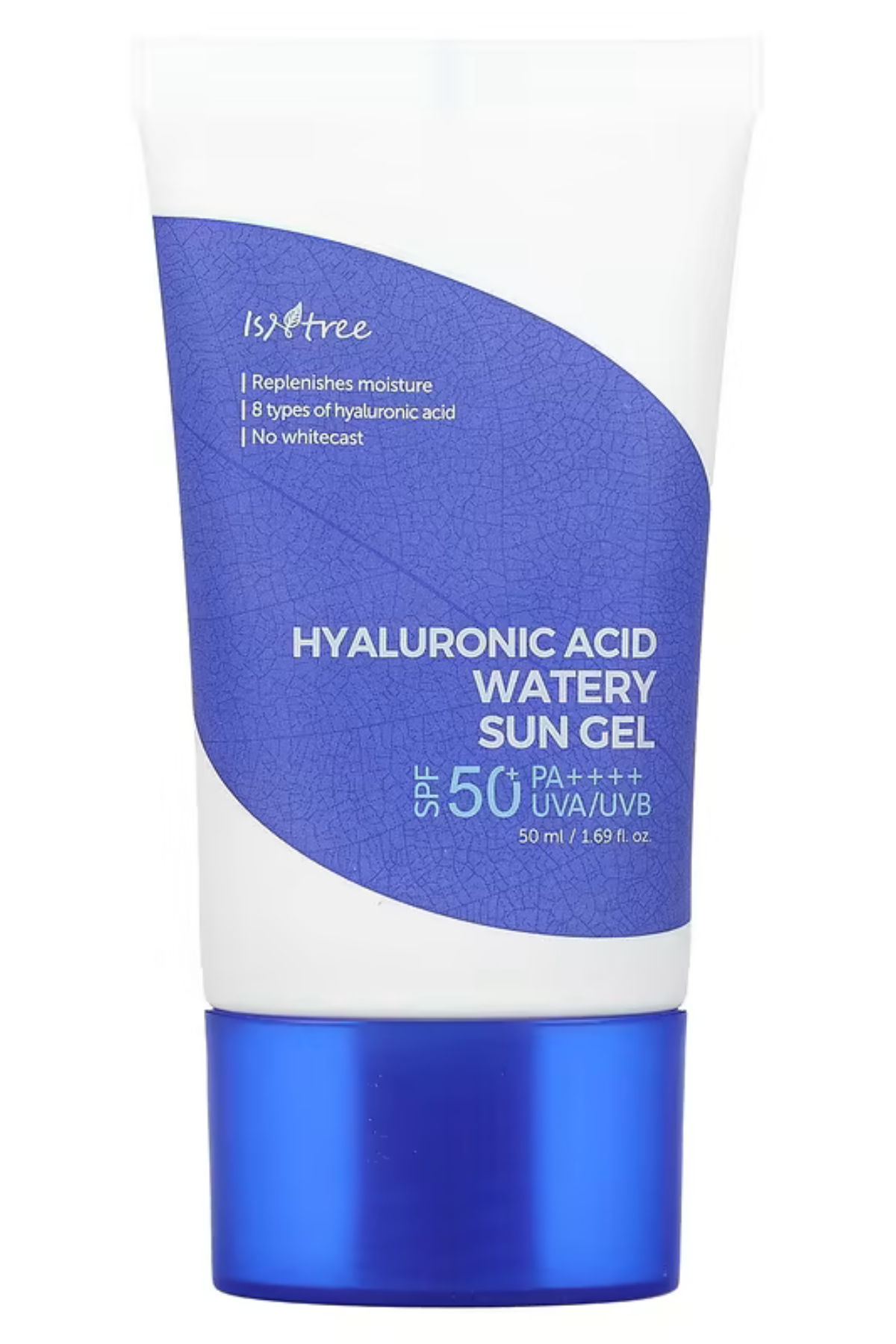
As Dr. Lamm mentioned, there are dozens of unique formulations of Korean sunscreens, including gels like Isntree's. Although it's lightweight (perfect for oily or acne-prone skin), it also packs a punch of hyaluronic acid so that you can ensure you're getting enough hydration from your formula while it protects you from the sun.
UV Protection: SPF 50+; PA++++
Texture: Lightweight gel
Type: Chemical sunscreen
Pros: Lightweight
Cons: Small container
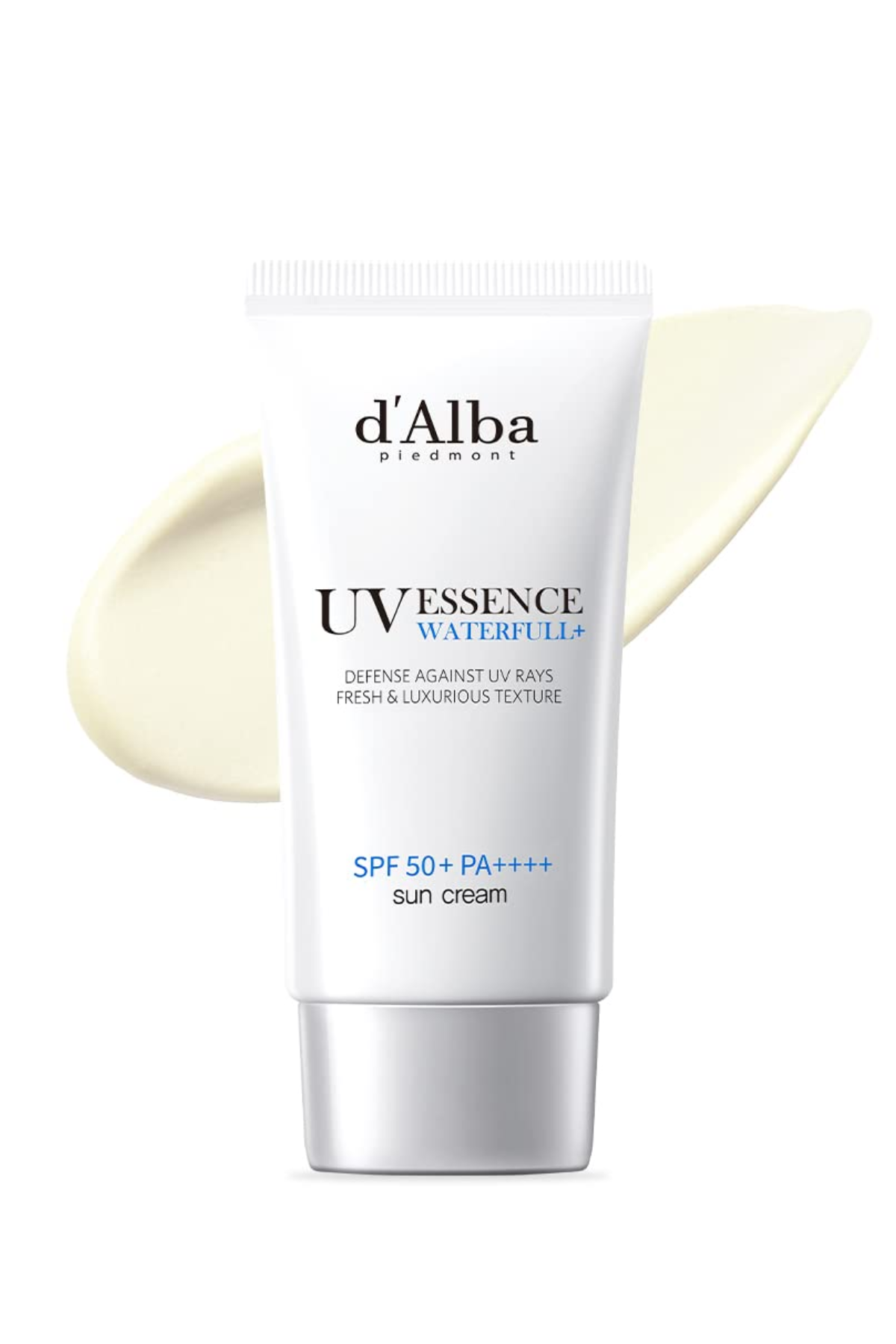
While the sun is known as a great glow enhancer, this SPF is better. It doesn't come with all of the baggage and can actually save you from it. "This sunscreen includes white truffle, santella, and witch hazel—all of which boast brightening, hydration, and anti-inflammatory properties," explains Dr. Lee, who adds that "the brightening properties help leave the skin instantly glowing."
UV Protection: SPF 50+; PA++++
Texture: Light essence
Type: Chemical sunscreen
Pros: Lightweight; Gives you a lovely glow
Cons: More expensive than other options
Why Korean Sunscreen?
Scores of K-Beauty fans swear by their Korean sunscreens, but for the uninitiated, the difference between these options and their Western counterparts is rather opaque. Sunscreen is sunscreen...right? As it turns out, wrong.
"The number one difference between Korean sunscreens and other ones would be their cosmetic elegance," says Dr. Lamm. "They're lightweight, absorb quickly, and there's really minimal to no white cast." (Unless the Korean sunscreen says tonal, which can look a little grayish, but they do that on purpose.) "They're truly suitable for everyday use and go under makeup beautifully."
The expert adds that Korean sunscreens come in a wide variety of textures, so there are plenty of options for all skin types—dry, oily, combination, and sensitive alike. "In Korea you'll find gels, lotions, creams, essences, and even sunwater," the skincare expert explains, "You can choose what feels the most comfortable on your skin."
Finally, she applauds the "innovative ingredients" used in Korean sunscreens, which support long-term skin health in addition to providing a high degree of protection against sun damage. Centella asiatica, niacinamide, ginseng extract, and antioxidants are all great examples.
Korean Sunscreens vs. Western Sunscreens
"Unlike sunscreens found in the west, Korean sunscreens are often equipped with new innovative filters allowing for more specific pigmentation protection (graded as PA+++) while also being lightweight and hydrating," explains Dr. Lee. "The elegance of these products minimize the chance of a white cast or heavy feel when one is wearing sunscreen. The skin is often left appearing dewy and glowing."
How to Apply Korean Sunscreen
Amount
When you apply sunscreen, you should always ensure that you have enough to fully cover your face and neck. Dr. Lamm recommends a "two finger length amount," which amounts to a drop about the size of a nickel.
Reapplication
Reapplication is key to all-day sun protection, particularly if you're sweating or swimming. (Yes, even if your formula of choice is waterproof.)
Regular reapplication is unrealistic if you're wearing sunscreen under a layer of makeup. The good news? "I tell my patients not to worry too much," Dr. Lamm says, "because primary application in the morning is still the most important. If you can only apply sunscreen once, the most important time to do so is in the morning, before you leave the house."
This applies even if you're only stepping outside for a quick errand, if you're taking a drive, or if you're sitting by a window.
"Sun damage and photo-aging is cumulative," she warns, "so those short car rides or short walks without any sun protection are one day going to show up on your skin cumulatively. Every time I get in the car and drive, I put on sunscreen, and if I have any amount of makeup on and don't want to ruin that, I may use a sun stick, a sun powder, or a sun cushion, which doesn't give as much coverage as two finger lengths of a cream, but it's something."
Meet the Experts
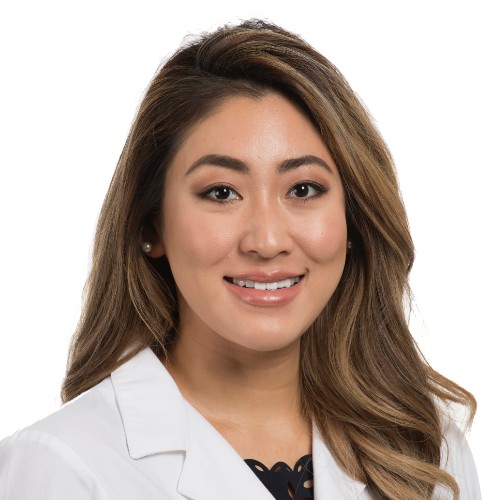
Dr. Zion Ko Lamm is a board-certified Internal Medicine Physician who specializes in skincare. She is known for her popular online content about skin health and Korean beauty, in particular. She is currently based in South Carolina.
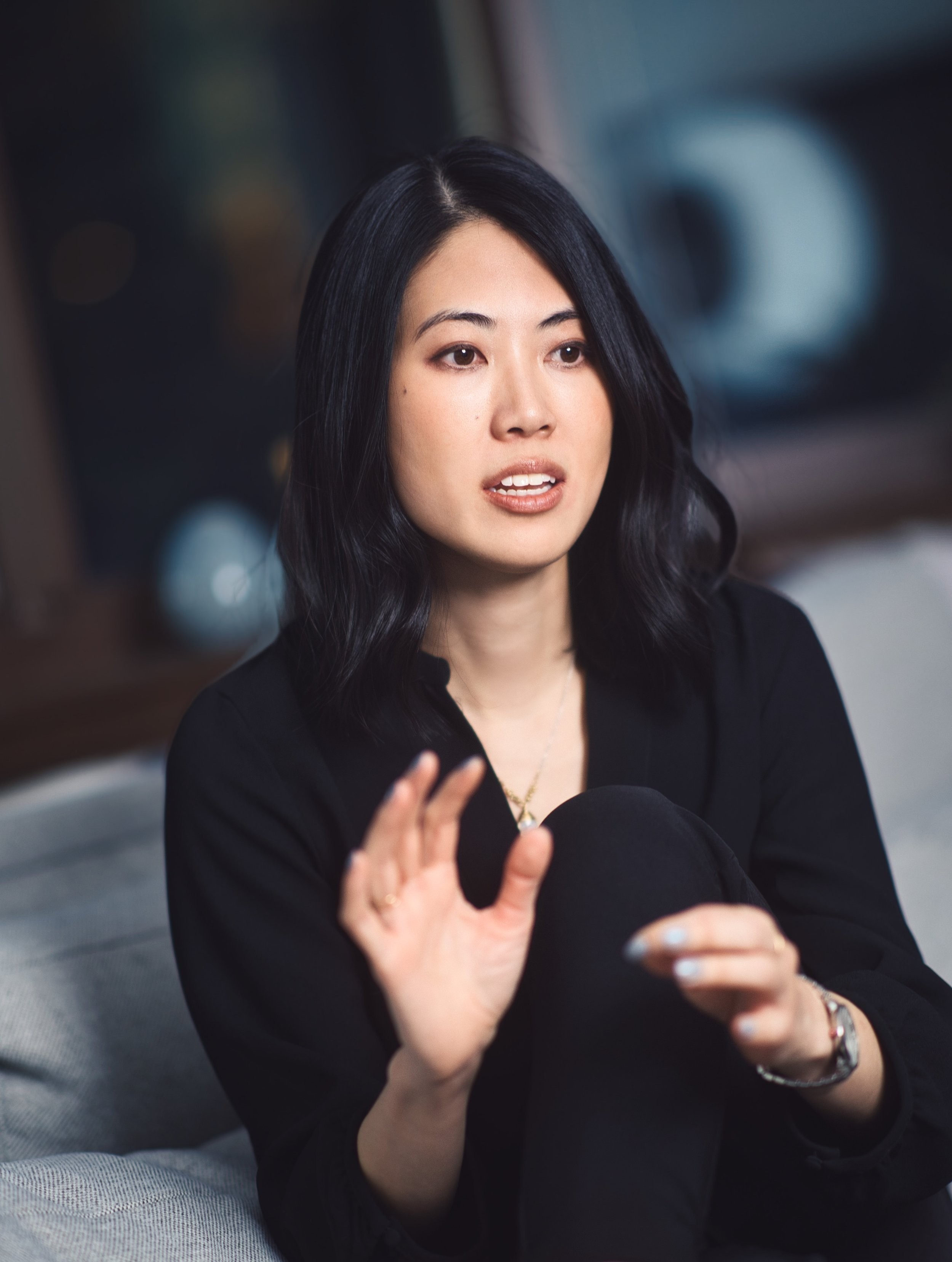
Dr. Nicole Y Lee is a board-certified dermatologist with advanced fellowship training in cosmetic and procedural dermatology. She completed her undergraduate at Georgetown University and then pursued her Doctorate in Medicine at the University of North Carolina in Chapel Hill, where she also obtained a Master of Public Health degree. Upon completing her medical education, Dr. Lee returned to Georgetown University for her internship in internal medicine, followed by her dermatology residency at the University of Alabama in Birmingham where she served as chief resident in her final year.
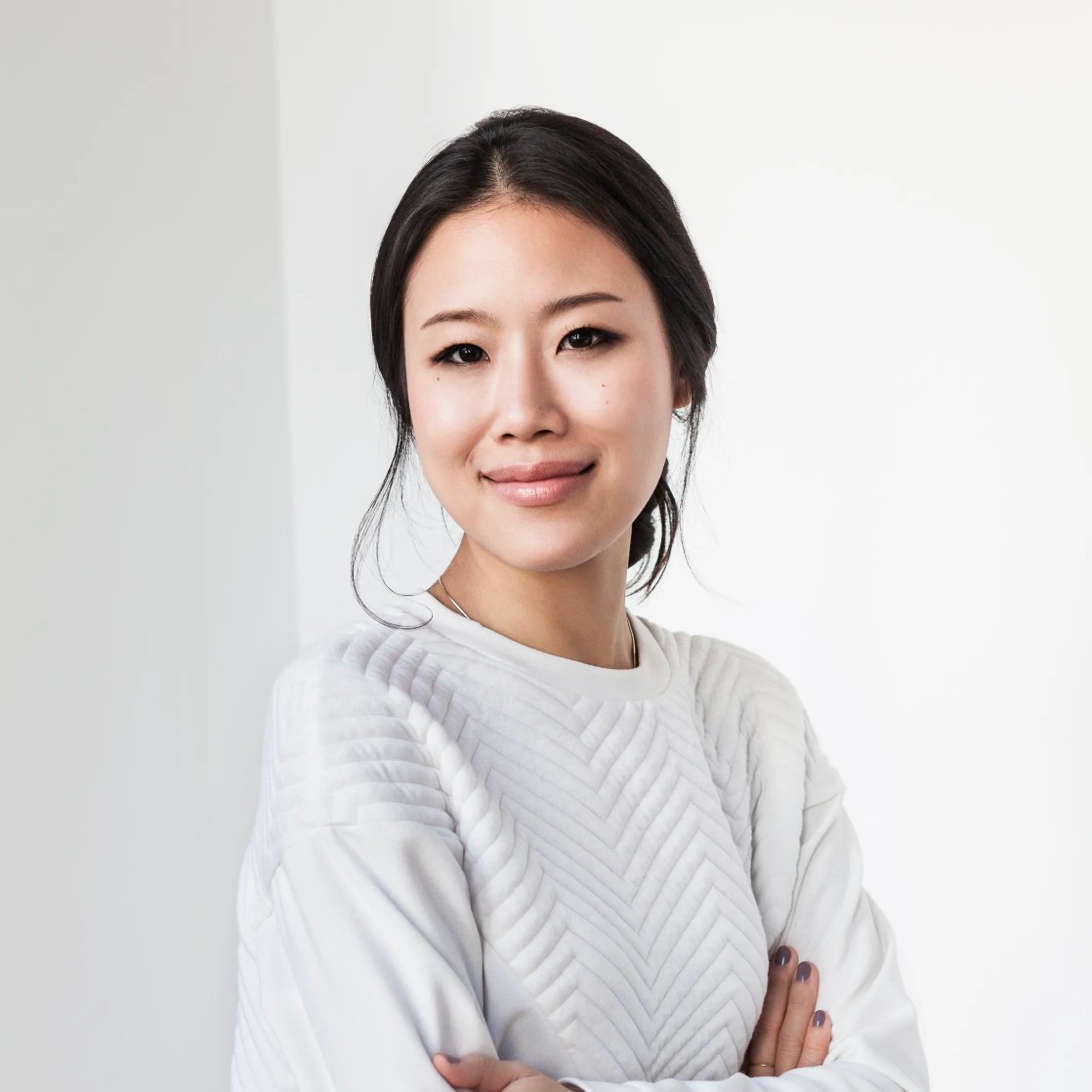
Alicia Yoon's love of skincare comes from a personal place. She struggled with severe eczema and problematic skin growing up. She worried that she would always have itchy, rashy, painful skin. To take control of her skin, she attended skin school in Korea, and finally discovered the knowledge, techniques, and Korean Beauty product technologies that allowed her to transform it. For the past 20 years, she has continued to study skincare ingredients and Korean Skincare techniques while also obtaining her NY Esthetician license and cultivating her own unique and effective skincare treatments.
Get exclusive access to fashion and beauty trends, hot-off-the-press celebrity news, and more.
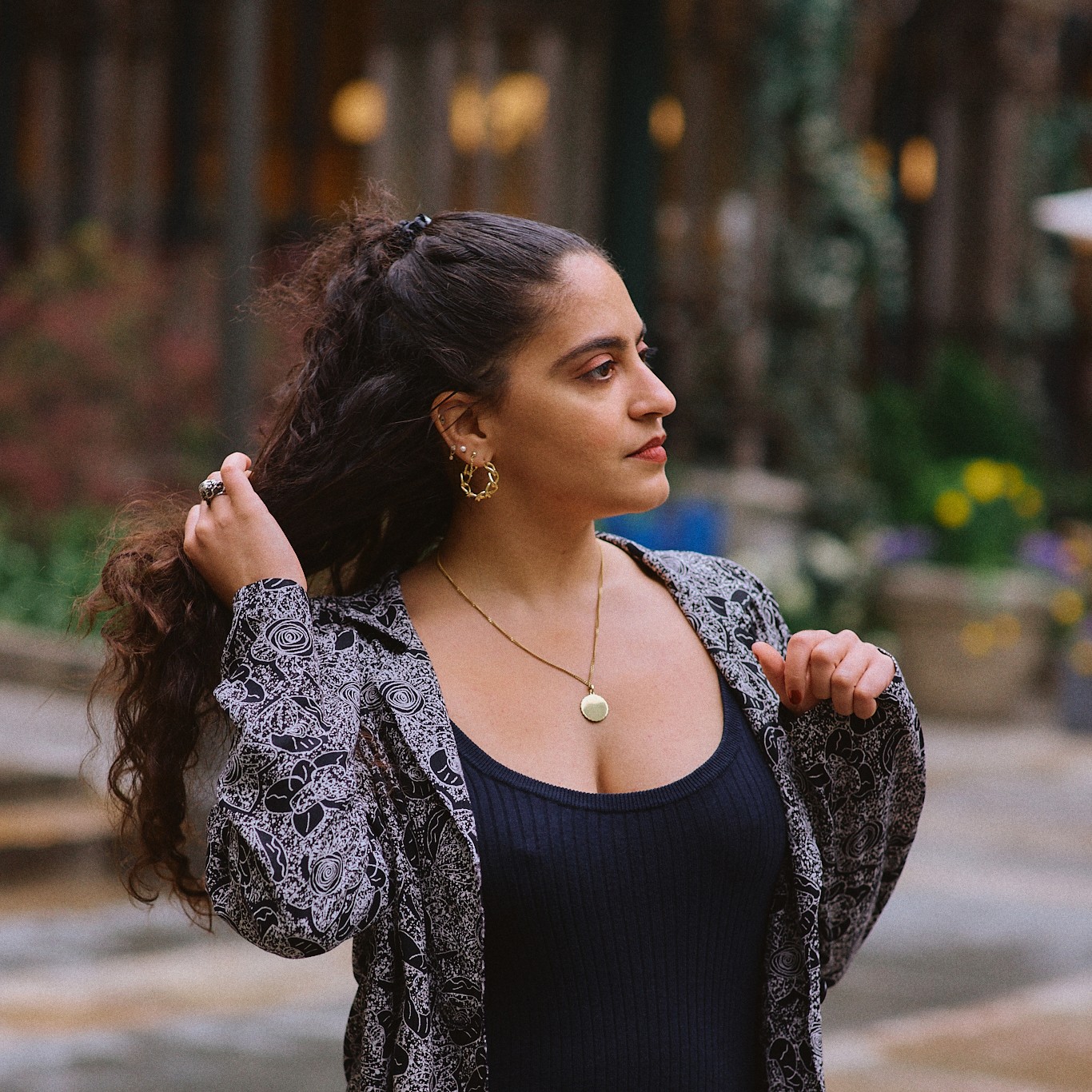
Gabrielle Ulubay is a Beauty Writer at Marie Claire. She has also written about sexual wellness, politics, culture, and fashion at Marie Claire and at publications including The New York Times, HuffPost Personal, Bustle, Alma, Muskrat Magazine, O'Bheal, and elsewhere. Her personal essay in The New York Times' Modern Love column kickstarted her professional writing career in 2018, and that piece has since been printed in the 2019 revised edition of the Modern Love book. Having studied history, international relations, and film, she has made films on politics and gender equity in addition to writing about cinema for Film Ireland, University College Cork, and on her personal blog, gabrielleulubay.medium.com. Before working with Marie Claire, Gabrielle worked in local government, higher education, and sales, and has resided in four countries and counting. She has worked extensively in the e-commerce and sales spaces since 2020, and spent two years at Drizly, where she developed an expertise in finding the best, highest quality goods and experiences money can buy.
Deeply political, she believes that skincare, haircare, and sexual wellness are central tenets to one's overall health and fights for them to be taken seriously, especially for people of color. She also loves studying makeup as a means of artistic expression, drawing on her experience as an artist in her analysis of beauty trends. She's based in New York City, where she can be found watching movies or running her art business when she isn't writing. Find her on Twitter at @GabrielleUlubay or on Instagram at @gabrielle.ulubay, or follow her art at @suburban.graffiti.art
- Sophia VilenskyFreelance Writer